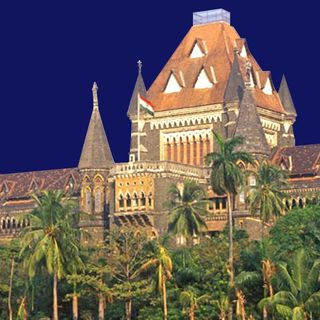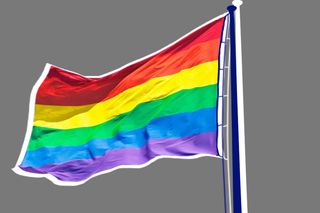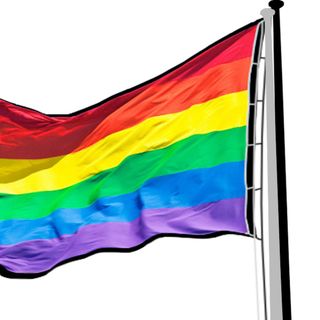
Watching Section 377: The Single Woman
The conclusion of a three-part series exploring what LGBTQ+ people and their families are feeling as they watch Supreme Court deliberations.

Last month, the Supreme Court began hearing petitions to repeal Section 377 of the Indian Penal Code, which criminalizes “carnal intercourse against the order of nature,” which has traditionally been interpreted to include sexual relations between persons of same sex. The bench, headed by Chief Justice Dipak Misra, has raised hopes; one of its members, Justice DY Chandrachud, linked the rights of LGBTQ+ individuals to the decision that established privacy as a fundamental right in January.
We spoke with several young adults, as well as the parent of one, about what it’s like to grow up gay in India, and how repealing Section 377 would affect their lives. The final installment of this three-part series features A., a Mumbai-based sexually fluid woman. A. prefers to be identified by her first initial out of concern for her and her family’s privacy. The interview has been edited for length and clarity.
The Single Woman
THE SWADDLE: You identify as sexually fluid. When did you realize this about yourself?
A., 27: I have always had an affinity towards women. When I say sexually fluid, I do believe that sexuality is a scale rather than certain pinpoints. Everyone lies on that scale. I feel that I fall on that scale a little left of center, in the sense that I lean toward the homosexual spectrum. I tried to like men. And I did, I think, one or two. But it never was as intense [a liking].
I got comfortable with the idea around 16 or 17. It was a process; it wasn’t like an epiphany one day, like, ‘Okay, I like women.’ Once I started discovering my body, and I started discovering myself sexually, is when I realized that it feels more at home to think of, or imagine, a life of love with women, rather than with men. I knew it was wrong for me to feel that way, in the sense that I knew my family would not be okay with it. But in my head, I felt quite liberated because it was finally — I don’t want to be dramatic — but it was finally like living away from a lie or something like that. Just a relief.
THE SWADDLE: Did you feel you had enough information about sex, sexuality and sexual health during that process of discovery?
A.: We had a sex ed class in school, and it was fairly well delivered. But I did not have much information about homosexual sex. I basically just thought it was kissing, at that point, because I was not aware of what one could do. Because we were not told how it works, sex was always heterosexual reproduction. I came to know through certain literatures and forays into queer studies in queer critical theory, and a TV show called The L Word.
THE SWADDLE: Has Section 377 ever affected the way you lead your life as a sexually fluid woman?
A.: It has affected me in the sense that it has always been a latent concern. I’m okay with telling my friends about my sexual orientation. But I am not very comfortable with going out, seeking partnerships, especially on online portals, because I’m really scared about the violence against homosexual people. And cyberbaiting is one of the many ways people get you, and you never know when people might turn violent. If [homosexual sex] is illegal, then while their violence is not justified, one can see it in a [normalized] light. But this sort of vigilantism will at least be illegal if they repeal the unnatural sodomy act.
I still am very well aware that I’m not supposed to, in any way, physically display my sexuality. I am quite fearful. That feeling that your life may be in danger of, like, an actual physical-violence threat because you love people who are not opposite-sex – it’s quite unnerving and unsettling. It’s also the reason why I don’t come out to men as often as I come out to women. I don’t want to generalize, but I feel that it’s a very hostile sect — most urban, middle class men are very hostile and very dominant, and it’s easier to keep away.
THE SWADDLE: Who have you come out to?
A.: The first person I came out to was my diary. Second was the only person I knew who was gay in my college. One day, I told him that I might be not straight; I might like women. He was quite nice about it. More than anything, he didn’t talk much and just listened. Then I moved on to closer friends.
Now, it’s not a big deal; I’ve told my mother as well. It came out by accident. She was using one of my older phones and I had forgotten to reset it, and she opened my Facebook. I had this sort of online flirtation with a girl in another city. And [my mother] found this out. And I told her it’s true. She was quite mature about it at the time. She was like, “Okay, this is your personal business. I don’t agree with it, and I think it’s wrong, but it’s not up to me; it’s up to you.” My father passed away without knowing, and I think that’s for the best, because I think it may have hurt him a lot more than it hurt my mother.
Once she knew, I was comfortable telling others, because it somehow felt easier. Even now, if it casually slips out, it does, but there are some people to whom I don’t tell. And there is still a certain degree of hesitation when I do tell people.
THE SWADDLE: How would repealing 377 affect you going forward?
A.: This anxiety, that what I’m doing is illegal, will be shed. It didn’t stop me from doing it before, it won’t stop me now, but if 377’s repealed, it’s one less… I’m already a Marxist, coming from a Muslim family, and I’m also not straight. I mean kitna marginalized honeka (how marginalized can you get). And I’m a woman. So one level of marginalization may come off. In my head, I’ll feel a little more liberated.
Also, I think it would go a long way, if it is repealed, in making [my sexual orientation] normal to my mother. She has said that in her personal mind, if she wants to accept it, she can. There have been times where she has cracked some amazing jokes about me liking women, like “Okay maybe I’ll get a second bahu.” But she says she can’t accept it because in the public sphere, it’s a problem. Her argument was that the Delhi High Court repealed 377 [in 2009], but the Supreme Court reinstated it, so that means that being gay is wrong. I said “But [now] the Supreme Court might repeal it, or parts of it.” She said, “Tabhi ka dekha jayega (we’ll see when it happens), but I don’t think the society will change just because it has been declared legal.”
She understands that this is what I “want” — she’s still in the whole headspace where she thinks it’s a choice. But she’s worried about how she was going to explain [my sexuality] to society; she said it’s not natural and normal. She said, “If society doesn’t look at it as normal, then no one does. Then it’s not normal.” So, I said, “If that’s how you’re thinking of it, then we are on two different planes, because my society does accept it as normal.”
So, we’ve reached a sort of inconvenient peace of sorts, an impasse.
Related


Watching Section 377: The Parent
